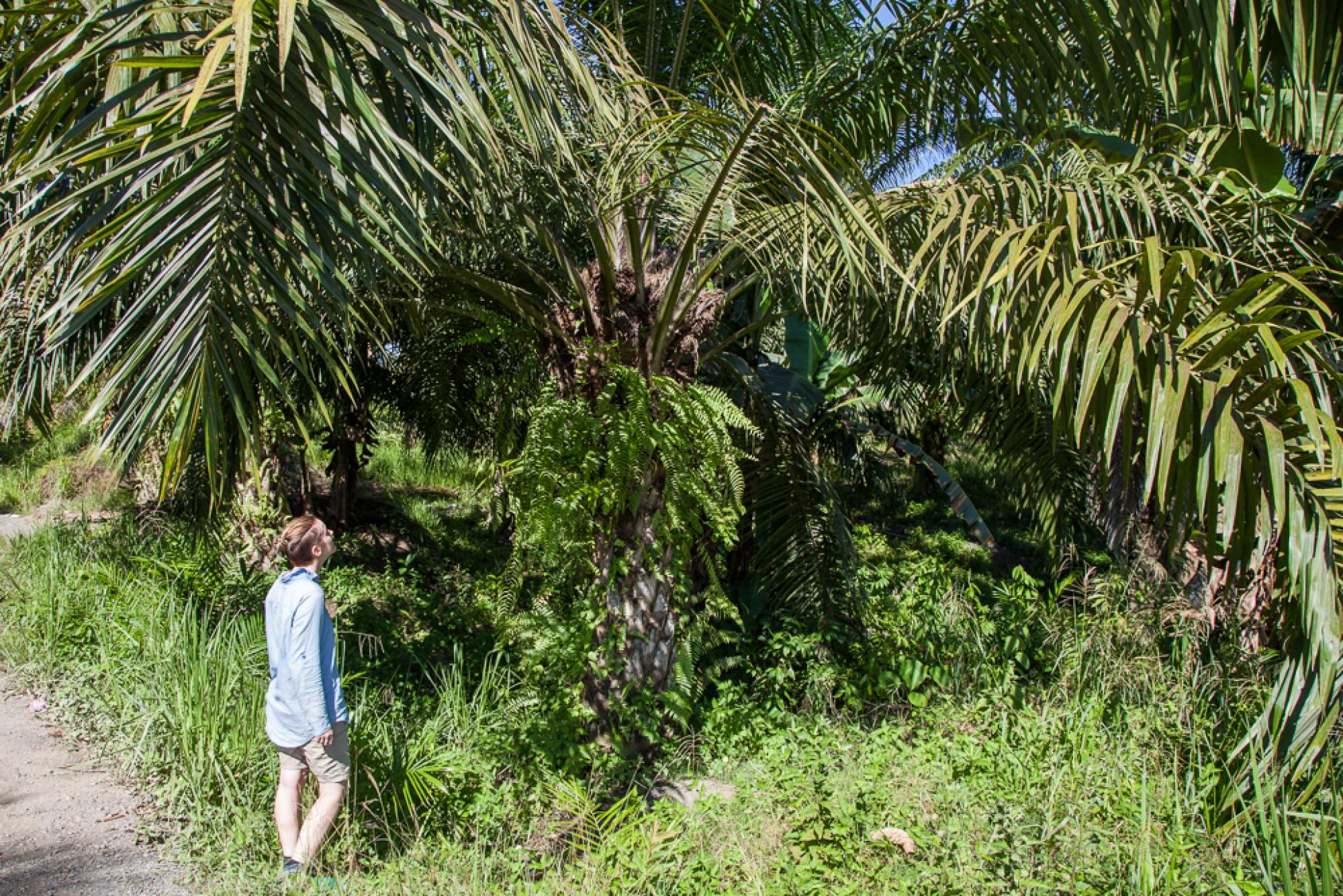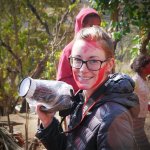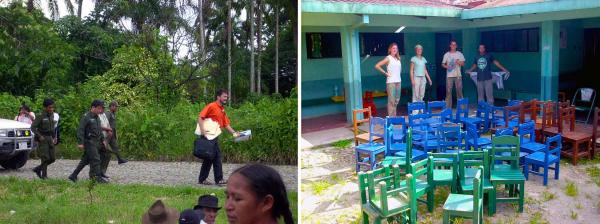The hot and humid tropics of the island of Borneo never appealed to me until I was told what I would be doing here with Raleigh International. After that, I decided that the mosquito bites and constant sweating would be a fair trade-off. As of this weekend, I will be documenting (and helping out with) the conservation of tropical rainforests, rare jungle species and also building sanitation facilities for some of the most rural villages of Malaysia.
To get an idea of what we will be doing over the next several weeks, I went on an eight-hour journey to the Tropical Rainforest Living Collection in Lahud Datu, which is run by the Tropical Rainforest Conversation Research Centre (TRCRC). On the way, we drove past hundreds of miles of palm oil plantations and we documented it with disgust, judging the kinds of people who would wipe out that much nature. Borneo has some of the oldest rainforests in the world, but according to some studies, it has lost 30 per cent of its forest in the last 40 years. It's a shocking figure, and it's mostly down to palm oil.
We met up with the senior executive of TRCRC, Mr. Benny, who took us on a tour around the project site. It is fundamentally a garden centre in the middle of a rainforest. There's something quite special about seeing rows of baby trees that will one day hold the nests of orangutans or provide the fruit for civet cats. More importantly, some will grow high enough to become canopy—the essential ingredient for a primary rainforest.
Currently, the surrounding area is mainly secondary rainforest, recovering slowly but surely from illegal palm oil plantations. The area is thick with the sounds of birds and insects, but the lack of high trees means a lack of diversity, and it will be many years before it's restored to its previous glory. Despite this, we saw a troupe of monkeys in the distance, as well as the evidence of wild boar. It's a beautiful area, made all the more wonderful by the passion of the people who work there.
It got me wondering what they thought of the encroaching palm oil plantations, so we sat down with Mr Benny one evening. His response was not what we were expecting.
“Rainforests are running out, getting burnt and so on, but that is a narrow perspective," said Mr. Benny. "People are only able to focus on one particular issue. When you look at the larger picture, a lot of people are trying to focus on how this industry can go hand-in-hand; how it can provide jobs for locals and the next generation, but also so the forest can keep intact for all the world to see.”
The amount of Malay employed by the palm industry had never crossed my mind. My only focus had been the huge conglomerates who only cared for profit, not conservation.
The amount of Malay employed by the palm industry had never crossed my mind. My only focus had been the huge conglomerates who only cared for profit, not conservation.
“It's the biggest job industry in East Malaysia,” Mr Benny explained patiently, “and the Malaysian palm oil industry are the main ones helping towards the conservation because they have profits to maintain. They came up with the idea to have sustainable palm oil, but there's a lot of giants trying to press down the sustainable market.”
It was a relief to here the Malaysian government were taking an interest in preservation, but what were they actually doing?
“The palm oil industry has separated forests and what the Malaysian government wants to achieve is to have corridors for the wildlife for them to travel from one place to another," he said. "Animals can't sustain in one place and there can be a lot of conflict when they go looking for more food, especially with elephants, sun bears and orangutans.”
Mr Benny also explained to us how a big focus on tourism is encouraging people to make sure logging and palm oil industries don't destroy their main attraction. Raleigh International has recently started a new program alongside the United States Government to encourage young people to look away from palm oil and towards more sustainable and eco-friendly enterprises. Sustainable Alternative Livelihoods for Youth in Borneo (or SALY-B) is in its first phase as I type, but there is already a positive response from its young entrepreneurs.
Lastly, we asked Mr Benny what is the most important thing to ensure the survival of his home country's rainforests.
“Knowledge," he said. "All the knowledge about forest, about nature. In this world we have huge factories adding to gas emissions, carbon emissions, and it just stays in the air. But where can it be kept? In the trees, in the forest. Clean water; why spend money on filtering when the forest can do it? Medicine is another thing the forest gives us. The next generation needs to know this, they need to get back to basics.”
I wouldn't go as far as to say I've come out of this schooling with a newfound appreciation for palm oil, but it has certainly changed my perspective. It's easy for us to call it evil and denounce everything about it, but there's more to the story. Education is key, and I hope that the many volunteers who come to Borneo leave with the same passion for conservation of our natural world.
Add this article to your reading list




